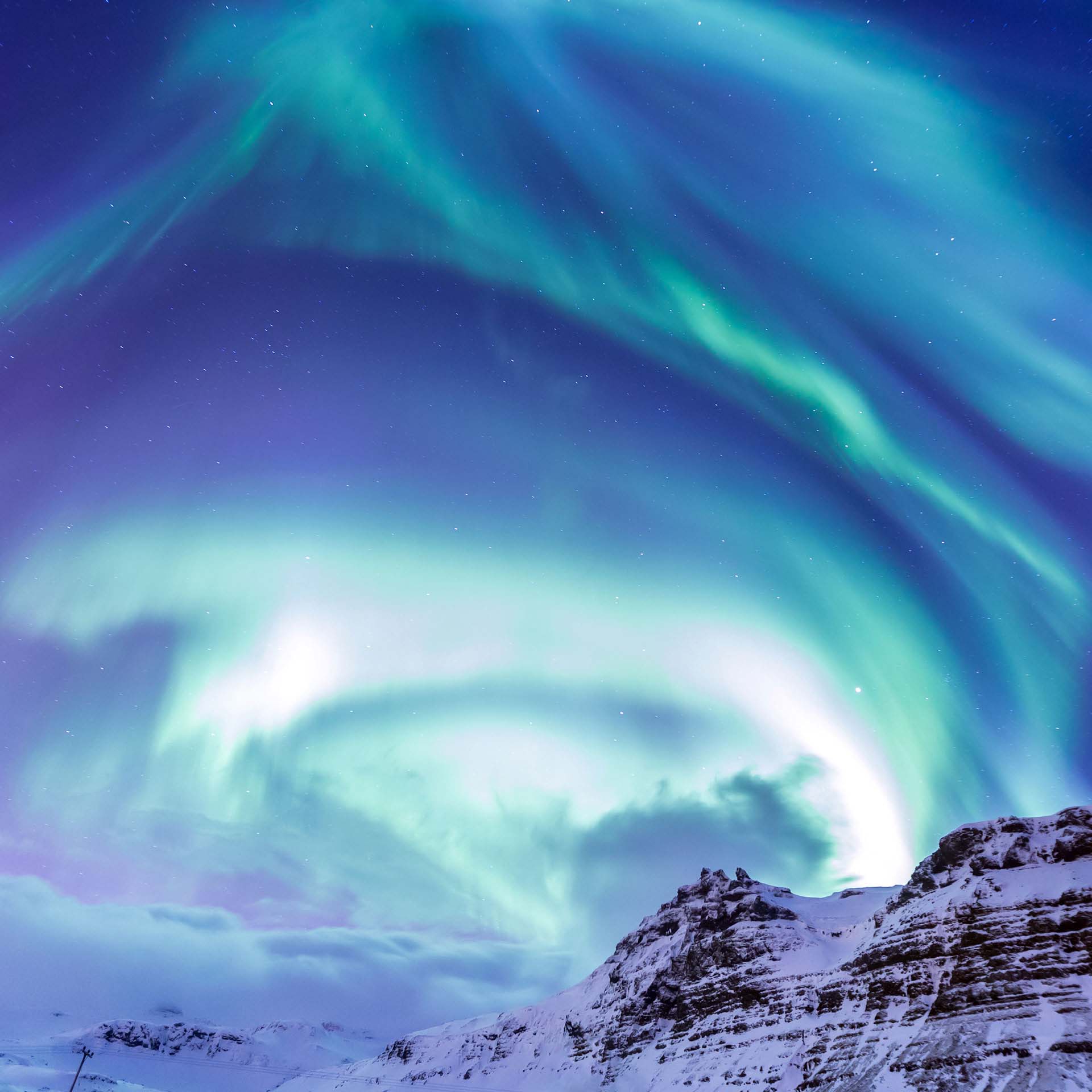Credits
16
Prerequisites
Relevant previous coursework
Courses taught in
English
Dates
Aug 21 – Nov 30
Program Countries
Iceland
Program Base
Ísafjörður
Critical Global Issue of Study
Climate & Environment

Study the impact of climate change on Arctic ecosystems and societies. Visit renewable energy centers, a glacier-dominated landscape, and rugged and awe-inspiring scenery.
16
Relevant previous coursework
English
Aug 21 – Nov 30
Iceland
Ísafjörður
Climate & Environment
The power of nature is evident in Iceland. Here you’ll study the causes of climate change and its impacts on the critical environment of the Arctic and the entire planet. Witness the astonishing beauty of glaciers, volcanoes, fjords, geothermal fields, highlands, lava flows, rugged coastline, and waterfalls. On excursions to Iceland’s remote Westfjords region and throughout Iceland, you’ll see the impact of global warming on glaciers and ice sheets. Observe ground zero of climate change amidst stunning landscapes while learning about renewable technologies that can help slow the damage.
Learn about climate models and carbon management from experts on the front lines of the fight against global warming. Fieldwork will introduce you to scientific methods, data collection and ethical issues related to climate research in Iceland. At the same time, you’ll live with an Icelandic family in Ísafjörður, a remote town of deep blue fjords and flat-topped mountains seldom visited by tourists.
Previous college-level coursework or background in engineering, earth sciences, sustainability, environmental policy, sociology, biology, geology, geography, chemistry, archaeology, or environmental science/studies.


In Iceland, you’ll be on the move, studying the impact of global warming on glaciers and ice sheets while discovering the country’s changing climate and renewable energy technologies. Breathtaking landscapes abound. You’ll visit waterfalls, black sand beaches, geothermal fields, rugged coastlines, hot springs, fjords, volcanoes, and more, including an extended excursion to highlights around Iceland. Stops may include the largest glacier in Europe and its lagoon, the geothermal area around Lake Mývatn, and the island of Grimsey within the Arctic Circle.
No study trip to Iceland would be complete without an excursion to Reykjavik on the coast of Iceland and the northernmost capital of a sovereign state in the world. It’s also one of the cleanest, greenest, and safest cities in the world. Settled in 874 AD, Reykjavik means “smoky bay” due to the steam rising from hot springs. Meet with scientists and climate experts in this thriving city while exploring nearby geothermal areas.
Please note that SIT will make every effort to maintain its programs as described. To respond to emergent situations, however, SIT may have to change or cancel programs.
Upon successful completion of the program, students will be able to:
The following syllabi are representative of this program. Because courses develop and change over time to take advantage of dynamic learning opportunities, actual course content will vary from term to term.
The syllabi can be useful for students, faculty, and study abroad offices in assessing credit transfer. Read more about credit transfer.
Carbon Management and Climate Modeling – syllabus
(ENGR3000 / 3 credits)
This seminar focuses on carbon management and mitigation, energy use and production in the Arctic, and the analysis and use of climate models in understanding and projecting climate change in the future. The seminar explores Iceland’s innovative experiments with carbon storage and fixation and the development of renewable energies, as well as considers the implications of climate projections in the Arctic. The seminar relies on resources available through program partners including University Centre of the Westfjords, University of Akureyri, University of Iceland, and several scientific institutions around Iceland.
The Arctic: Changing Ecosystems and Resilience – syllabus
(ENVI3000 / 3 credits)
The Arctic, a region of major importance to the world, is changing rapidly. This seminar makes the effects of climate change in this unique part of the world a subject of discussion. It addresses the conditions of change in Arctic ecosystems, highlighting areas of resilience and vulnerability and delving into areas of active study with researchers in Iceland. The seminar also considers community adaptation to the changing environment around them. Sessions will be primarily focused in Ísafjörður but will include program partners around Iceland, including members of working groups of the Arctic Council.
Research Methods and Ethics in the Arctic – syllabus
(ENVI3500 / 4 credits)
In this seminar, students are introduced to recent research on climate change. Students become familiar with the methodologies employed in natural and social science research on climate change as well as in renewable energy and sustainability studies. Students select and analyze relevant issues surrounding climate change in the Arctic, including its impact on ecosystems and human communities, in consultation with program faculty. Students will work independently or in small groups to research and identify an existing problem related to climate change in the Arctic and produce a research proposal for their Research Project in Arctic Climate Protection. This course gives students the opportunity to engage on a deeper level with the topics covered in the seminars and to develop their academic and research skills. Support is provided throughout the course by program faculty, particularly in aiding students in finding resources and Research Project in Arctic Climate Protection advisors in Iceland.
Research Project in Arctic Climate Protection – syllabus
(ISPR3000 / 6 credits)
The Research Project in Arctic Climate Protection builds on and connects the content and experiences from the other courses in the program and is undertaken in the second half of the semester. In this course, students design a project addressing the protection of the Arctic climate through renewable energy, behavioral practice, or a creative method/approach to track or address climate change in the Arctic. Students have the opportunity to work independently or in small groups on their projects. Another aim of the Research Project in Arctic Climate Protection is to build collaborative partnerships with local communities for the enhancement of innovative approaches to climate change.
Potential project topics include:


Relevant career paths:
Climate research
Public policy
Climate modeling and environmental planning
Climate impact, vulnerability, and adaptation research
Field monitoring station management


SIT Study Abroad is committed to ensuring that international education is within reach for all students. We believe in the transformative power of immersive, intercultural experiences and are dedicated to supporting students in their educational journey.
See Full Breakdown
A critical step in preparing for your study abroad program is planning how you will maintain your health and wellbeing. Please review the following information carefully and contact [email protected] with any questions or concerns.
View Information